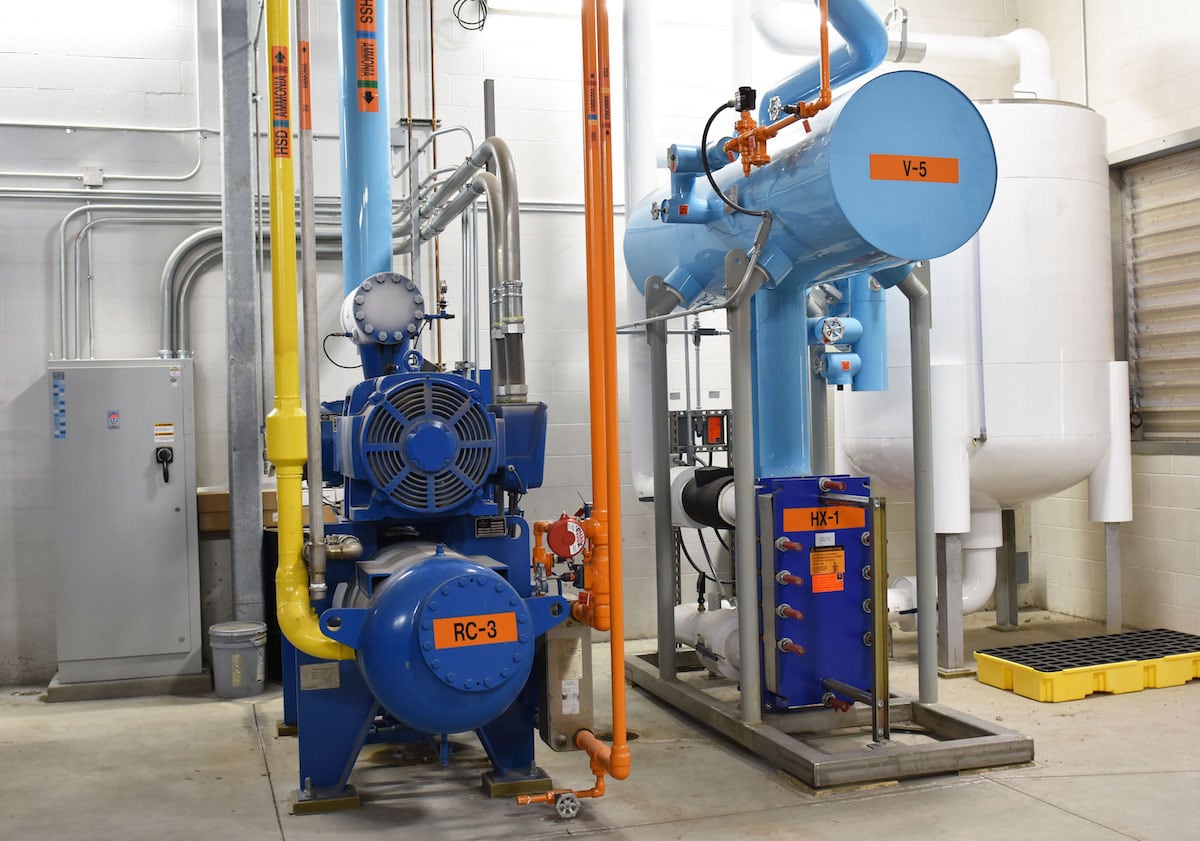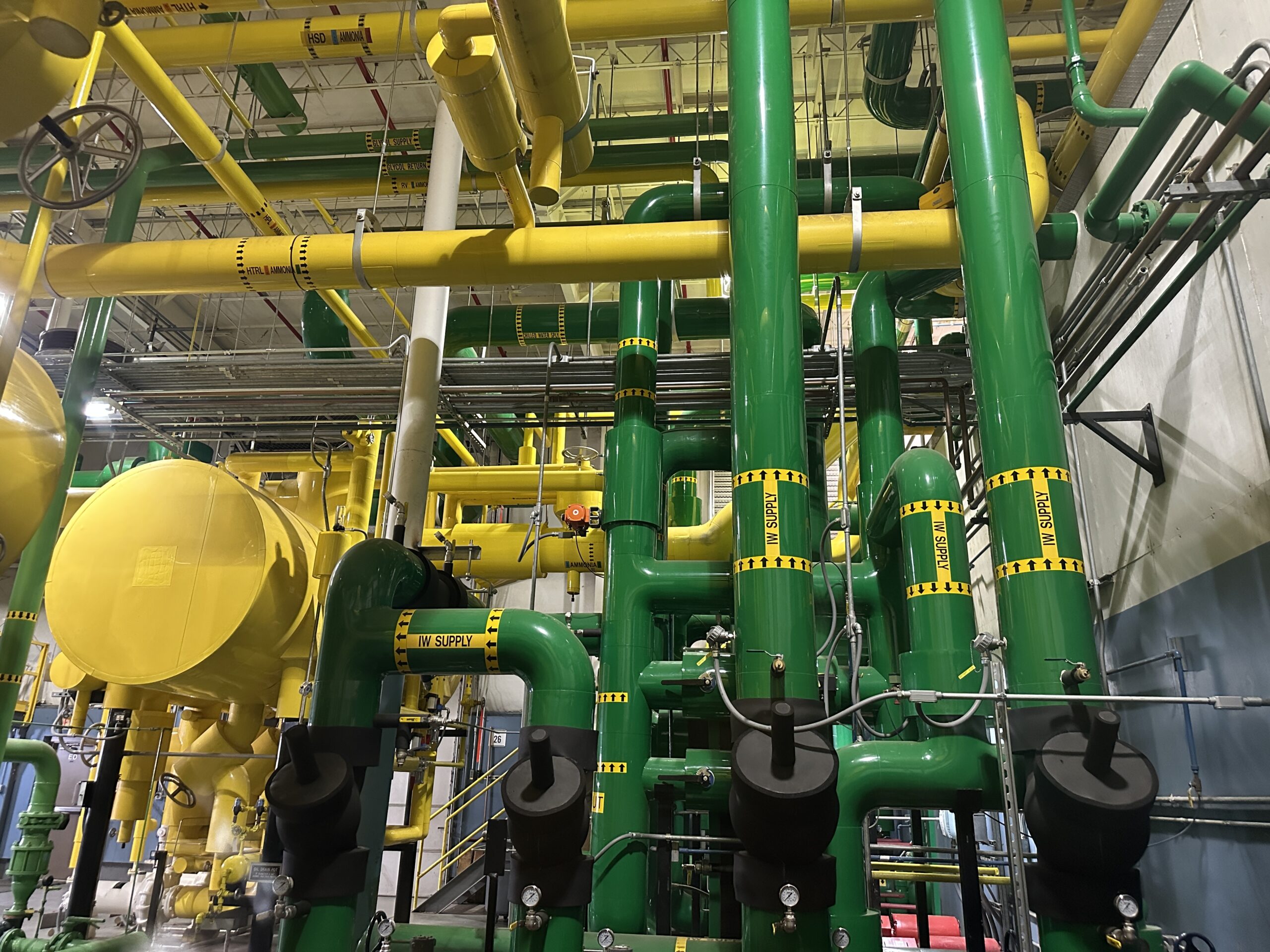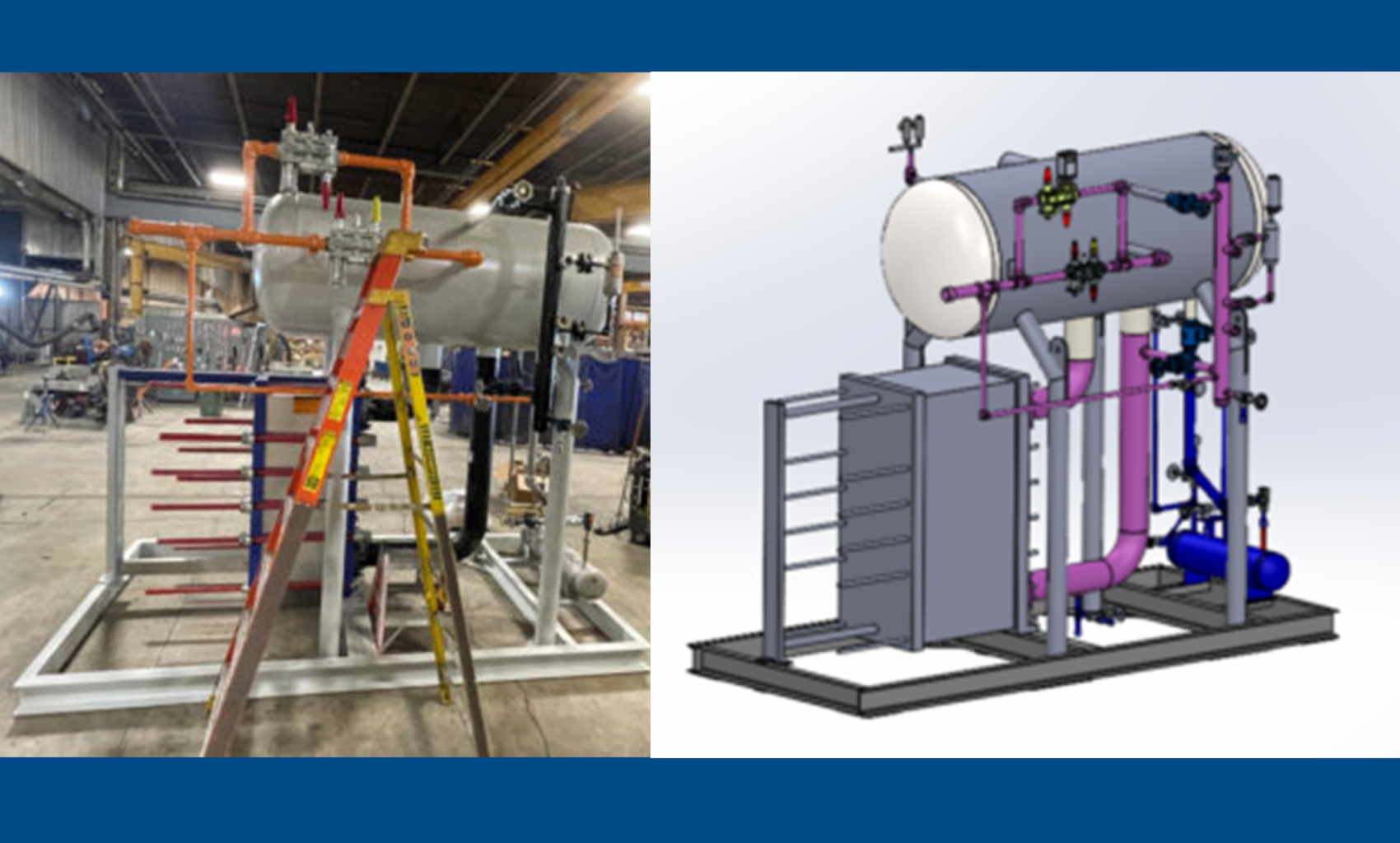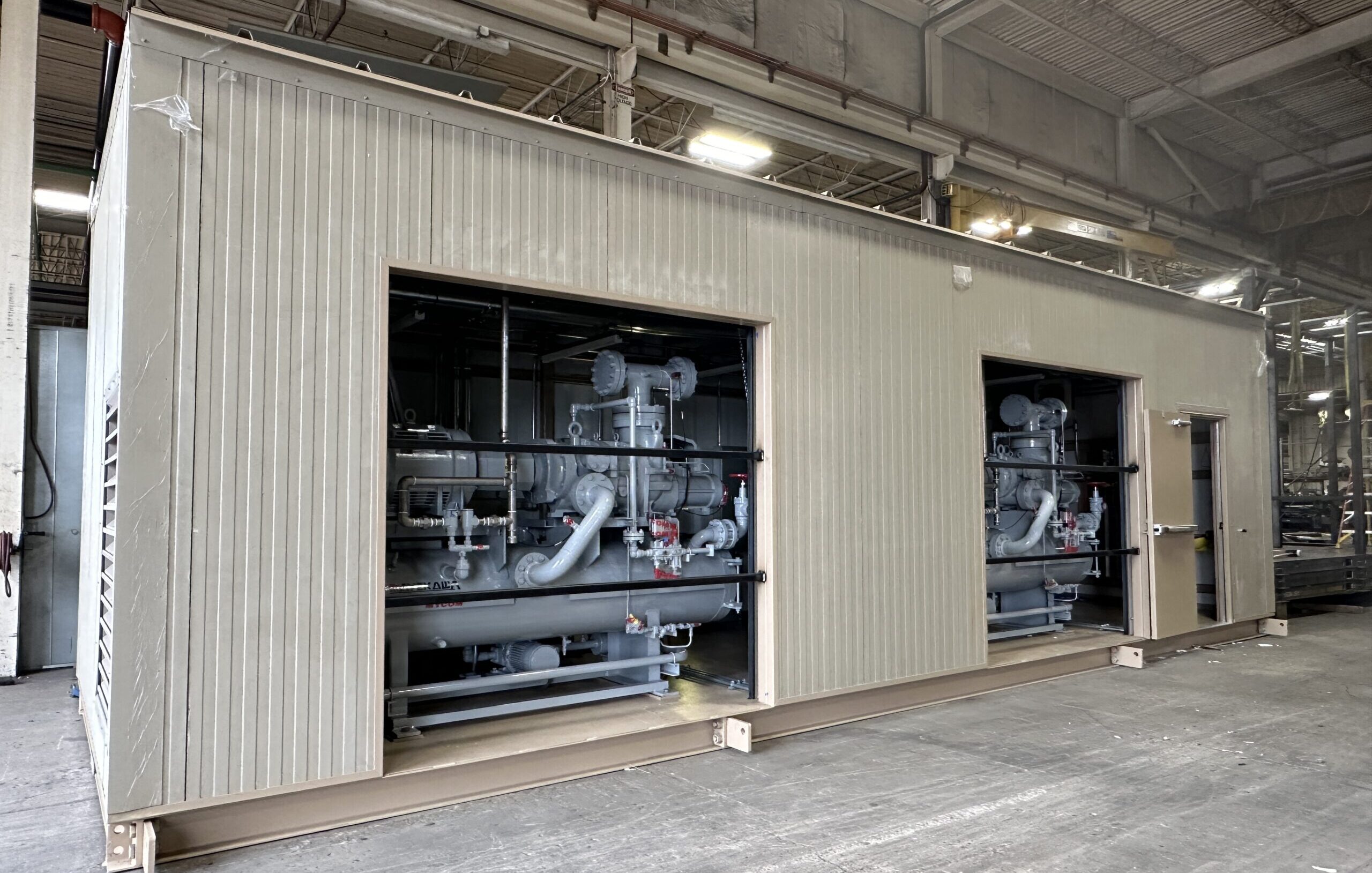Maintaining proper storage and temperature control in the food and beverage industry is critical for ensuring product quality, safety, and shelf life. Industrial ammonia refrigeration systems are widely used in this sector due to their efficiency, reliability, and low environmental impact. These systems use ammonia as the refrigerant, a natural compound with excellent heat transfer properties.
The Importance of an Ammonia Refrigeration System
Industrial ammonia refrigeration systems play a vital role in the food and beverage industry, maintaining optimal storage conditions for perishable goods while minimizing environmental impact. Understanding the components of these systems is essential for food and beverage businesses to ensure efficient and reliable refrigeration operations. By carefully selecting, installing, and maintaining these components, businesses can optimize their refrigeration processes, reduce downtime, and improve product quality and safety. As environmental concerns continue to rise, embracing ammonia-based refrigeration solutions becomes a practical choice and a responsible one for the food and beverage industry.
Essential Components of an Ammonia Refrigeration System
1. Compressor
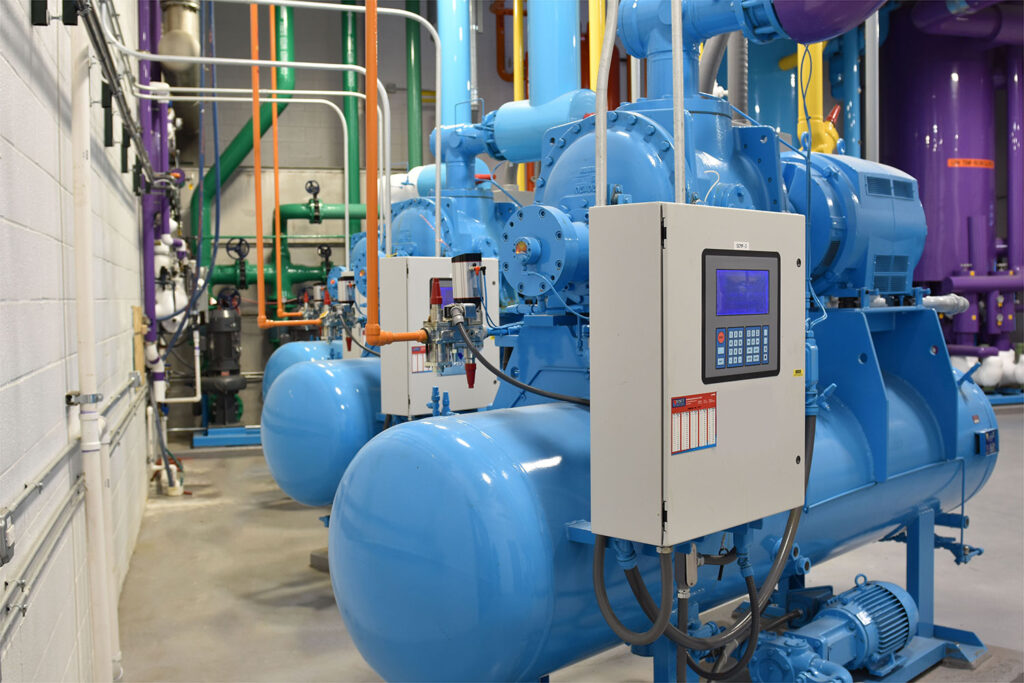
The compressor is the heart of the ammonia refrigeration system, responsible for circulating the refrigerant and maintaining the necessary pressure levels for heat exchange. It compresses low-pressure ammonia gas, raising its temperature and pressure, and sends it to the condenser for cooling. Two common compressors used in ammonia systems are reciprocating and screw compressors. Reciprocating compressors are suitable for smaller systems, while screw compressors are preferred for larger installations.
2. Condenser
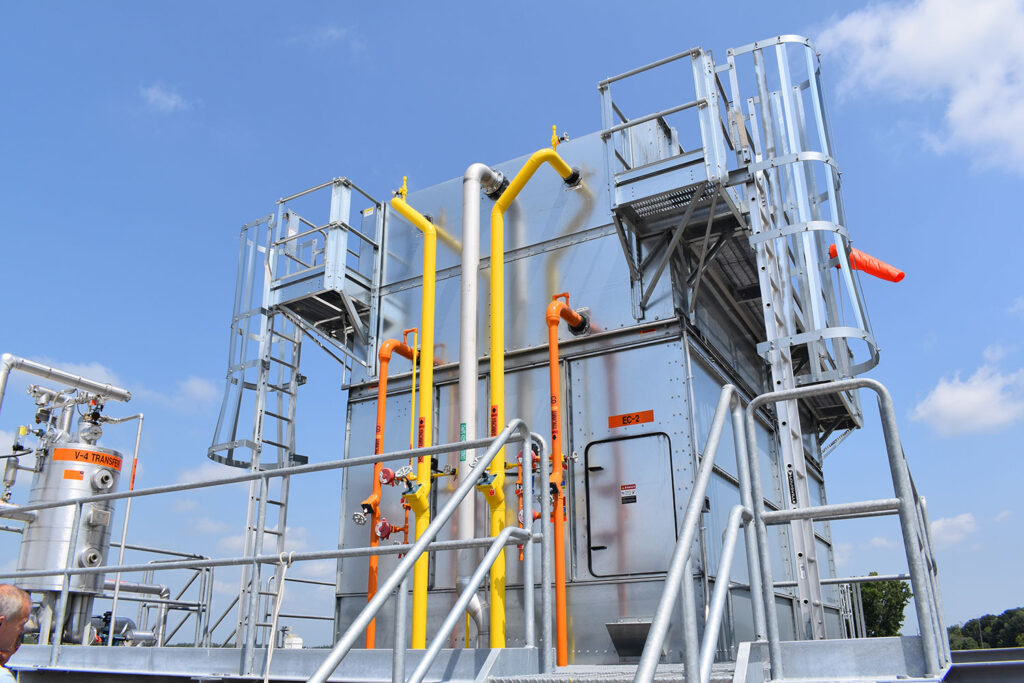
The condenser is the component that removes heat from the compressed ammonia gas, causing it to condense into a high-pressure liquid. The heat is typically dissipated to the surrounding air or water.
3. Evaporator
The evaporator is where the refrigerant absorbs heat from the surrounding environment, causing it to evaporate and change back into a low-pressure gas. This process cools the environment or process, making it ideal for refrigeration. Evaporators are available in various configurations, including shell-and-tube, plate, and finned tube, each with specific advantages depending on the application and space requirements.
4. Expansion Valve
An expansion valve controls the flow of high-pressure liquid ammonia from the condenser into the low-pressure evaporator(s). As the liquid expands, it undergoes a rapid pressure drop, leading to a decrease in temperature, which is crucial for efficient cooling in the evaporator. Proper adjustment and maintenance of the expansion valve are essential to maintain system efficiency and safety.
5. Oil Separator
Ammonia refrigeration systems require lubricating oil for the smooth operation of the compressor. However, excess oil in the system can reduce efficiency and cause potential safety hazards. The oil separator is responsible for removing oil from the refrigerant and returning it to the compressor, ensuring proper lubrication while maintaining a minimal presence in the system.
6. Accumulator
An accumulator is a safety device that separates the liquid and vapor phases of ammonia in the system. It prevents liquid ammonia from reaching the compressor, which could cause damage and reduce the system’s lifespan. Accumulators prevent liquid carryover in the suction line and safeguard the compressor from potential breakdowns.
7. Safety Relief Valves
Safety relief valves are critical components that protect the ammonia refrigeration system from overpressure situations. If the pressure exceeds the system’s maximum design limits, these valves release excess ammonia gas, preventing potential catastrophic failures and ensuring the safety of both personnel and equipment.
Learn more about Ammonia Refrigeration Systems from Bassett Mechanical
Want to learn more about ammonia refrigeration systems? Contact us today. Bassett Mechanical has over 85 years of experience designing, fabricating, installing, controlling, and servicing industrial refrigeration systems.

